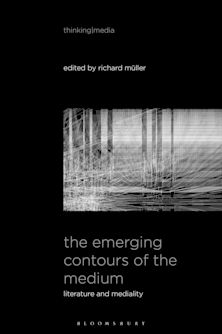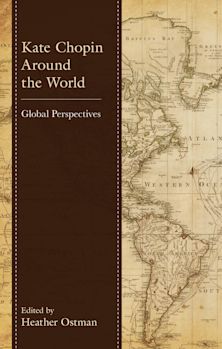Spirit Possession in French, Haitian, and Vodou Thought
An Intellectual History
Spirit Possession in French, Haitian, and Vodou Thought
An Intellectual History
This product is usually dispatched within 1 week
- Delivery and returns info
-
Free US delivery on orders $35 or over
Description
This book recuperates the important history that Haitian thought around Vodou possession has had in French critical theory. The author takes the period of the 1930s and ‘40s, as the centerfold of a more complex network of relations that places Haiti as one of the pivots of a more expanded intellectual conversation around “possession,” which links anthropology, literature, psychoanalysis, human rights, and visual arts in France, Haiti, and the United States. Benedicty argues that Haiti as the anthropological other serves as a kick-starter to an entire French-based theoretical apparatus (Breton, Leiris, Bataille, de Certeau, Foucault, and Butler), but once up and running, its role as catalyst is forgotten and the multiple iterations of the anthropological other are cast back into the net of Michel-Rolph Trouillot’s “Savage slot.”
The book offers the reader unfamiliar with Haiti a comprehensive interdisciplinary study of twentieth and early twenty-first century Haitian thought, including a detailed timeline of important moments in the intellectual history that connects Haiti to France and the United States.
The first part of the book is about global dispossessions in the first decades of the twentieth century; the second part points to how the narratives of ‘Haiti’ are intimately linked to a Franco-U.S.-American discursive space, constructed over the course of the twentieth century, a discursive order that has conflated the representation of ‘Haiti’ with an understanding of Vodou primarily as an occult religion, and not as a philosophical system. The third and fourth parts of the book examine how the novels of René Depestre, Jean-Claude Fignolé, and Kettly Mars have revisited the notion of possession since the fall of the Duvalier dictatorships.
Table of Contents
Preface. Haitian Studies, French Critical Theory, and Postcolonial Theory
Acknowledgments
Introduction. Possession, Dispossession, and Self-Possession: From Pathology to Healing, Braiding Intellectual Histories
Part I. Dispossessions: Nationhood, Citizenship, Personhood, and Poverty
Chapter 1. Hegel and Agamben: Materializing Philosophy, Philosophizing the Material
Chapter 2. States of Exceptions: Dayan, Trouillot, and Mbembe
Chapter 3. The Newest Utopia: 'Ending Poverty'
Chapter 4. Mbembe's “Unhappiness” and Trouillot's “Fundamentally New Subjects”
Part II. Possession Dispossessed: Pathologizing and a 'Western' Intellectual History of Possession
Chapter 5. 'Unhappiness' as Taboo: Anthropology, Psychology, and the Disciplining of 'Possession'
Chapter 6: Fostering Revolution? Breton's “Haitian Lectures”
Chapter 7: Leiris, “Le grand possédé”: Ethiopia, Europe, and Haiti
Chapter 8: From Haiti to Brazil, From Herskovits to Métraux: Anthropology and Human Rights
Chapter 9: Verger's
Product details
| Published | Nov 12 2014 |
|---|---|
| Format | Hardback |
| Edition | 1st |
| Extent | 436 |
| ISBN | 9780739184653 |
| Imprint | Lexington Books |
| Illustrations | 9 b/w photos; |
| Dimensions | 9 x 6 inches |
| Publisher | Bloomsbury Publishing |
Reviews

ONLINE RESOURCES
Bloomsbury Collections
This book is available on Bloomsbury Collections where your library has access.


































